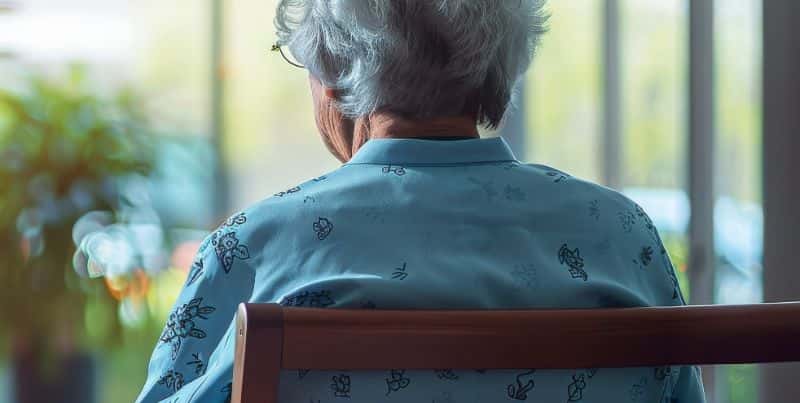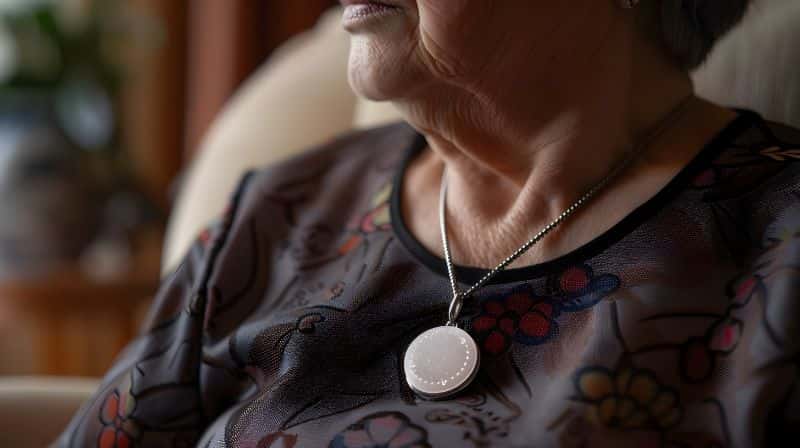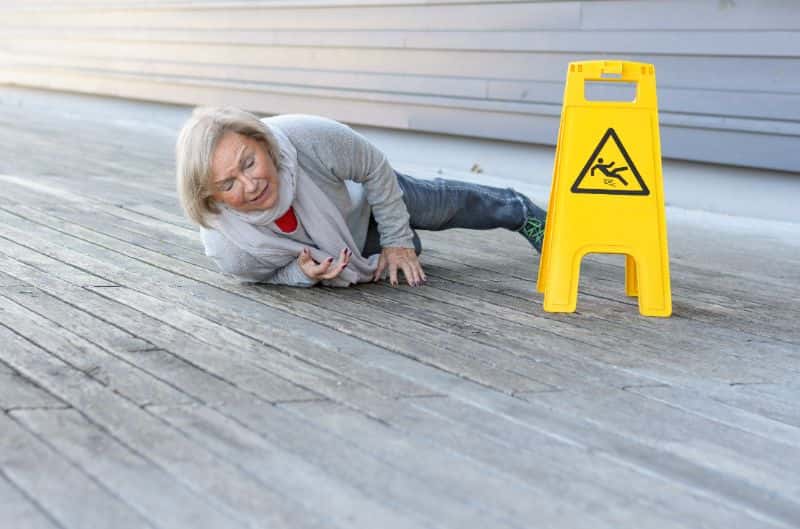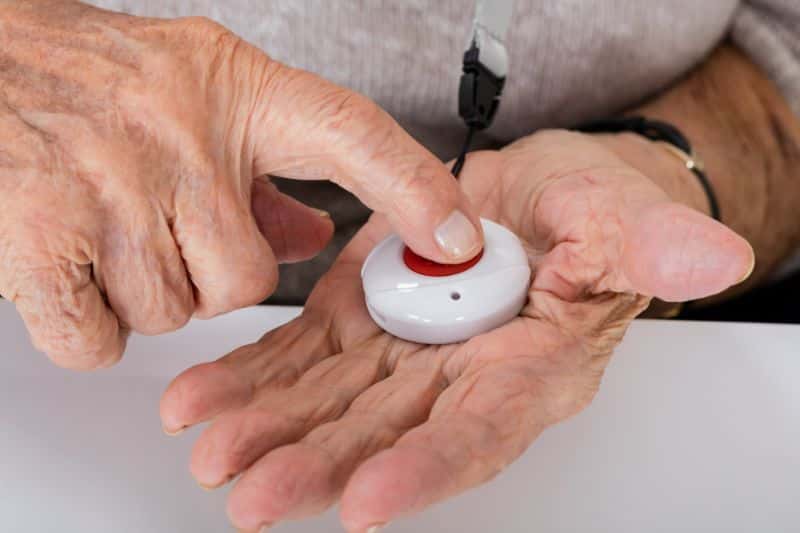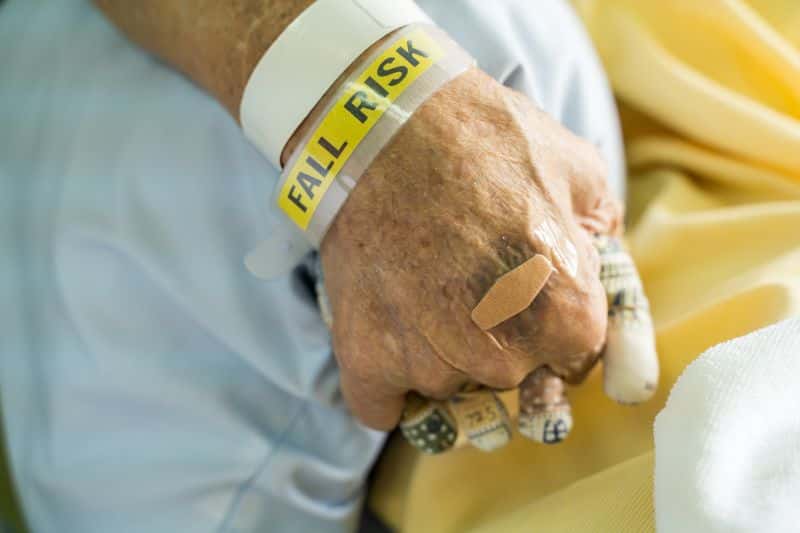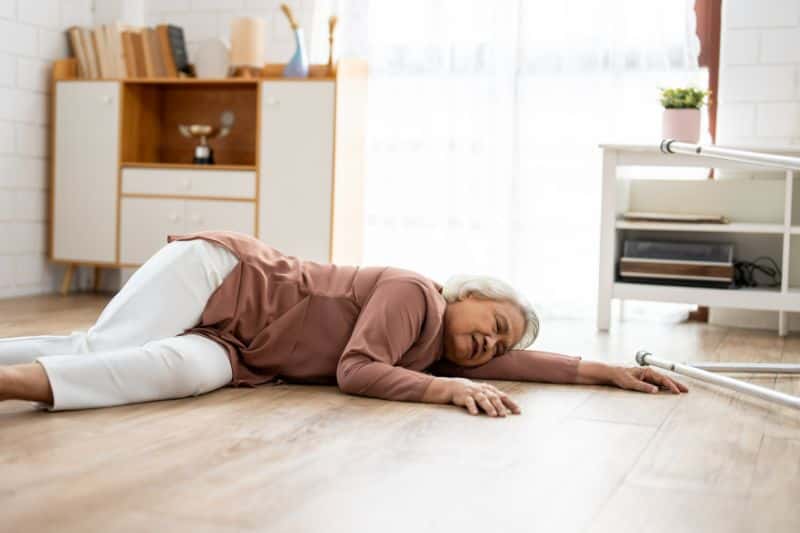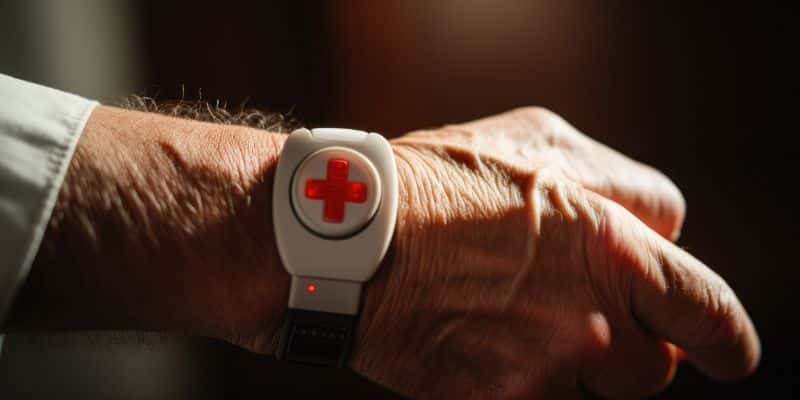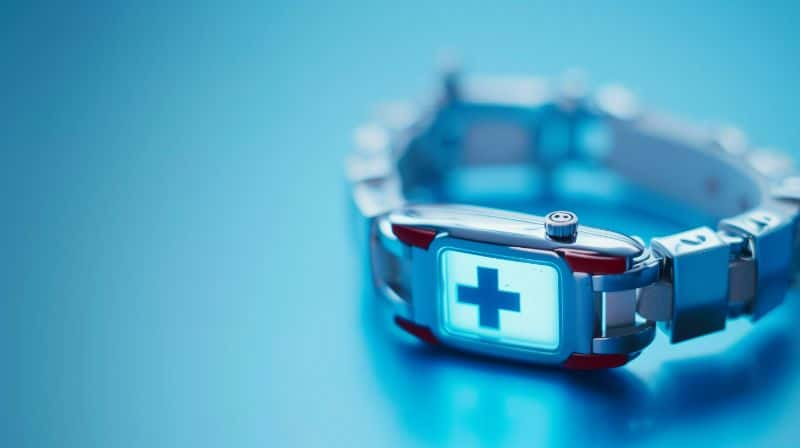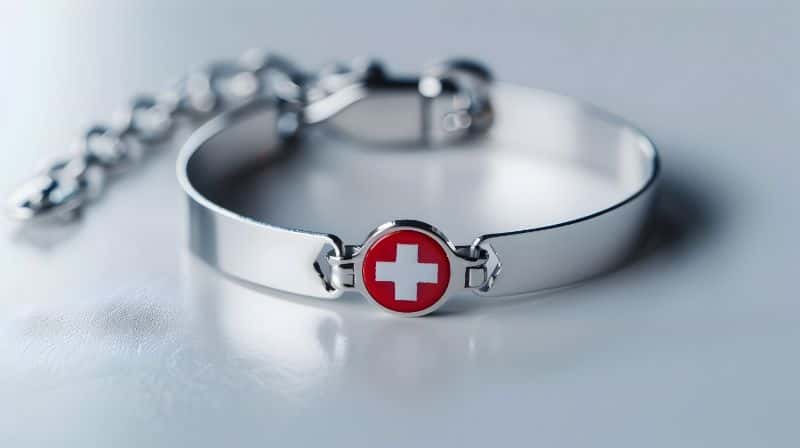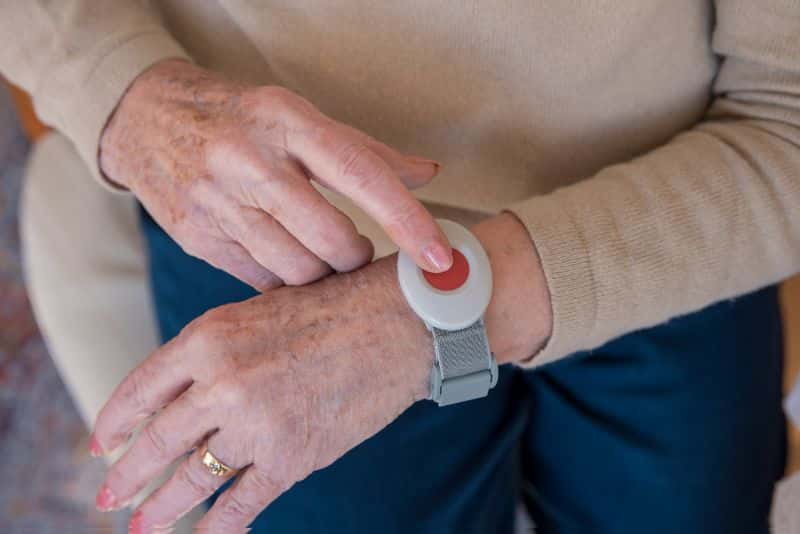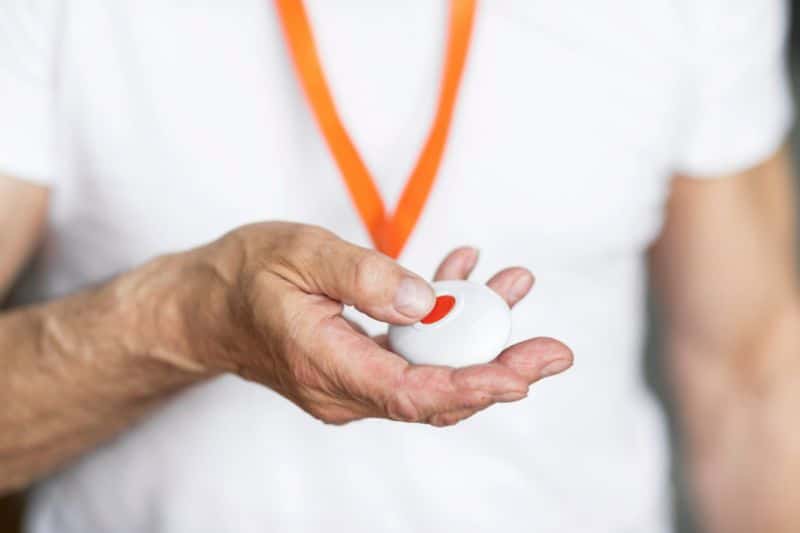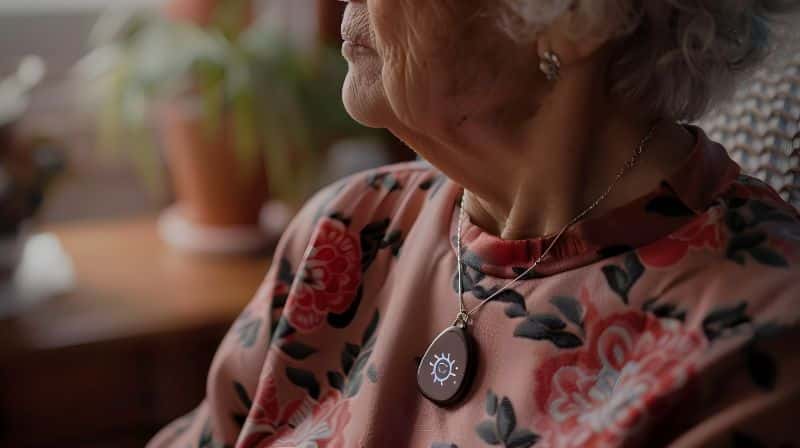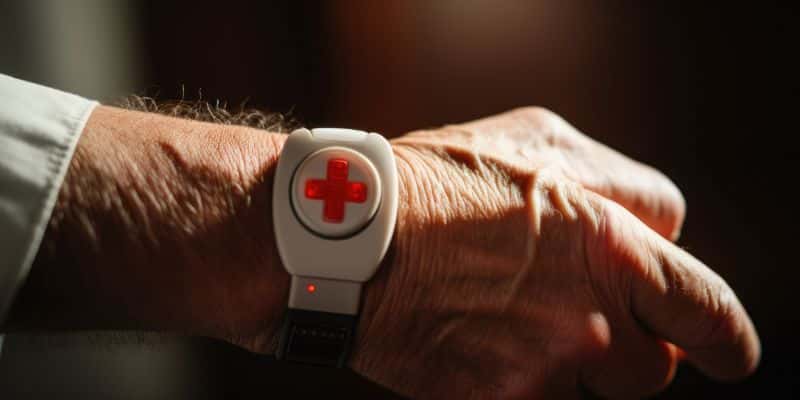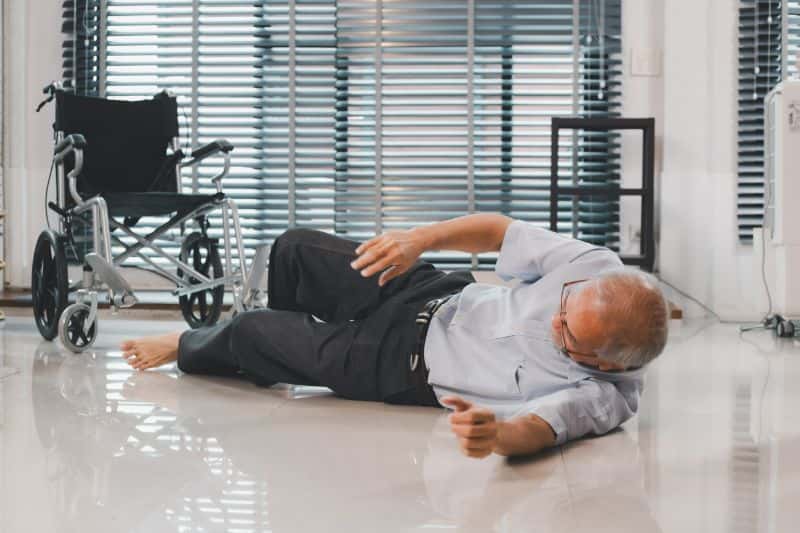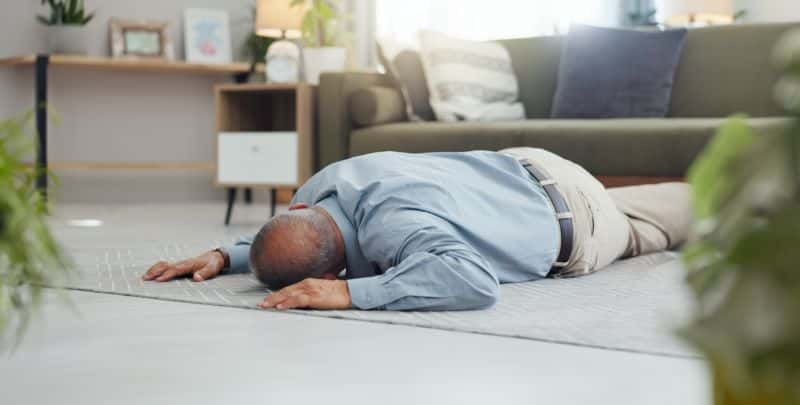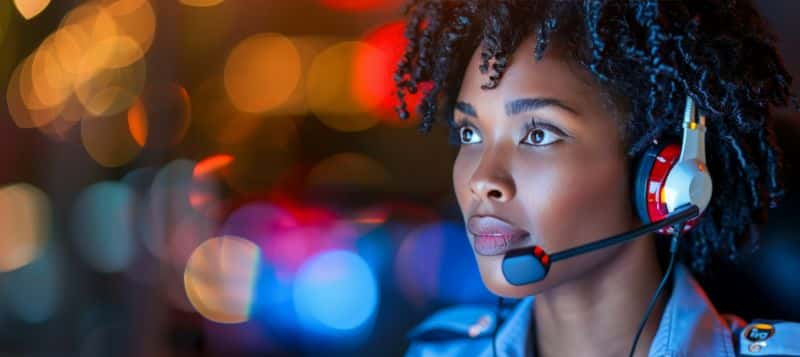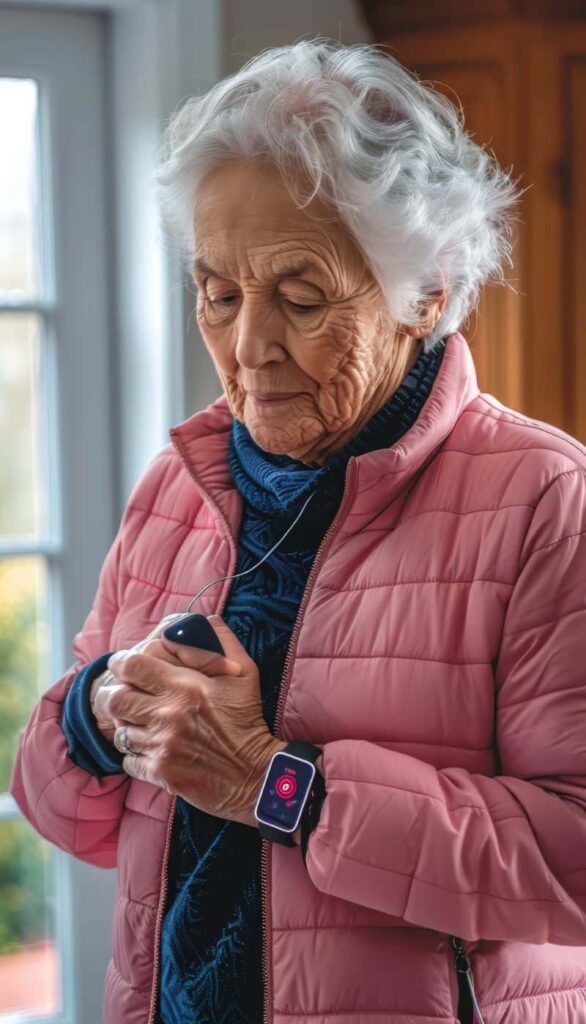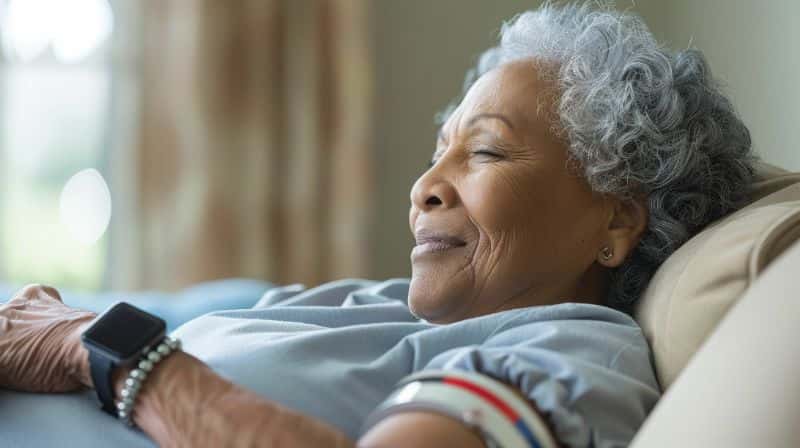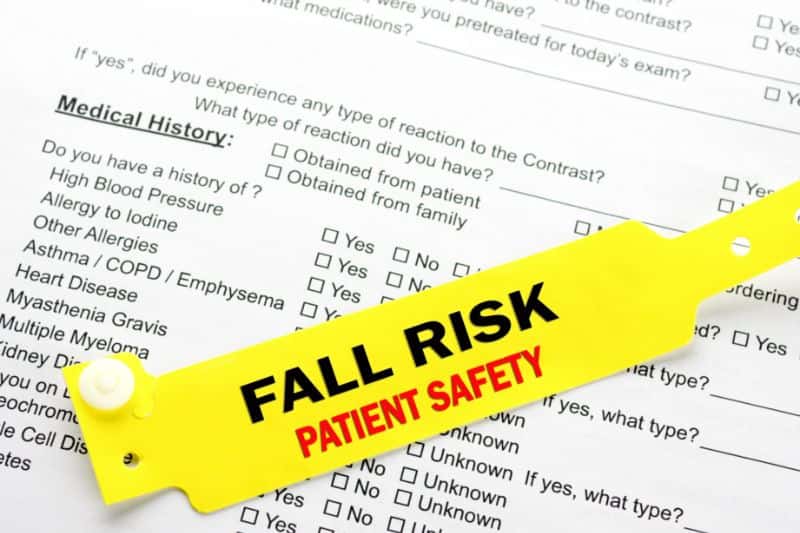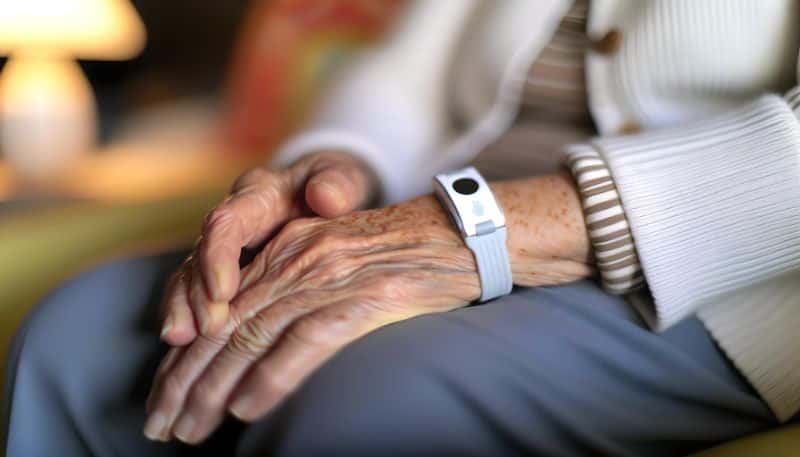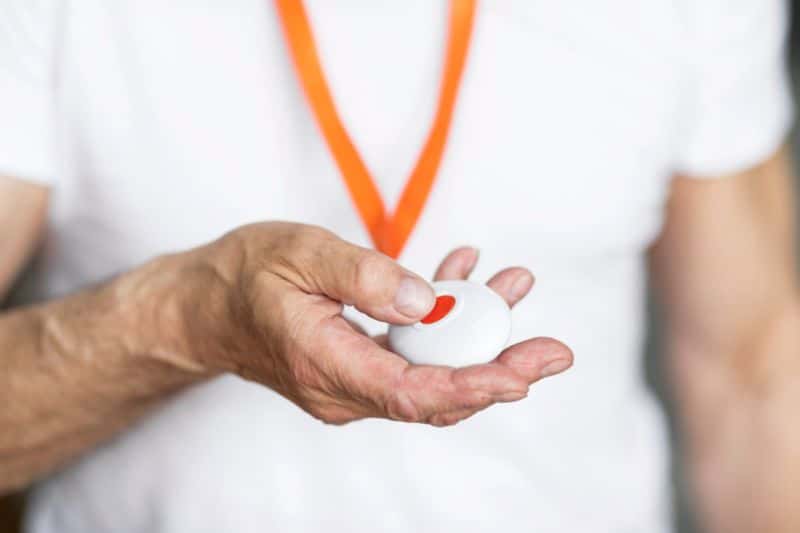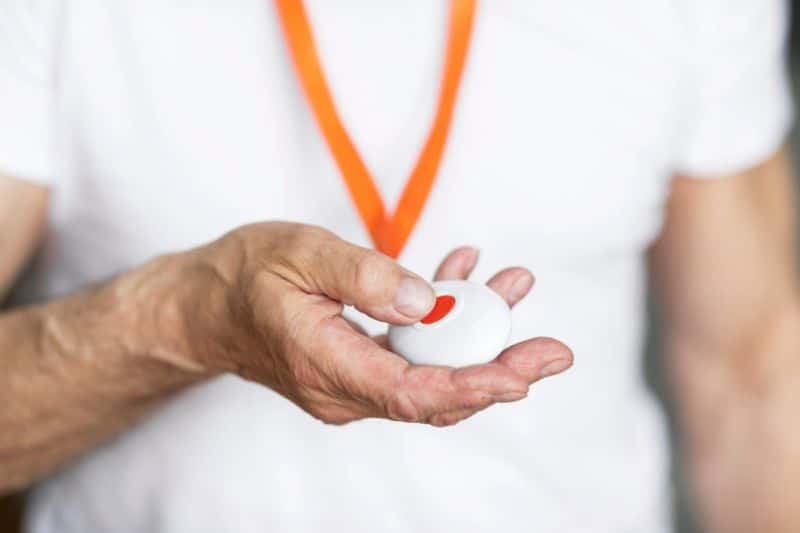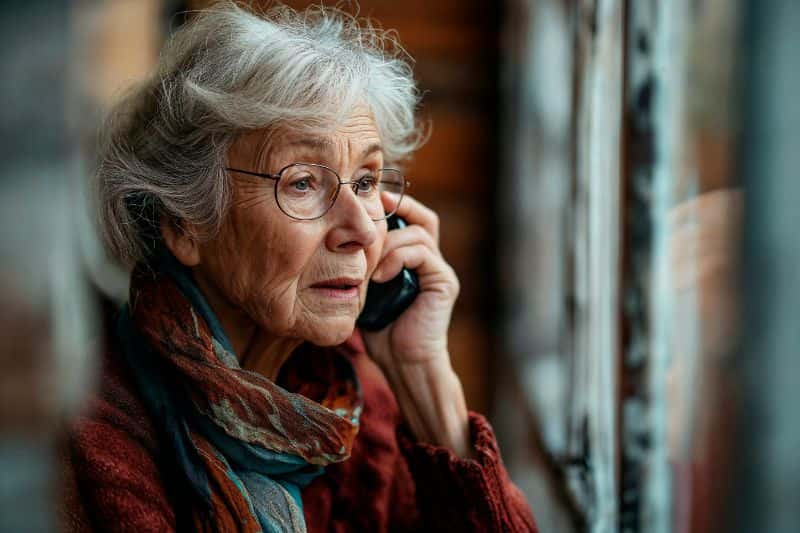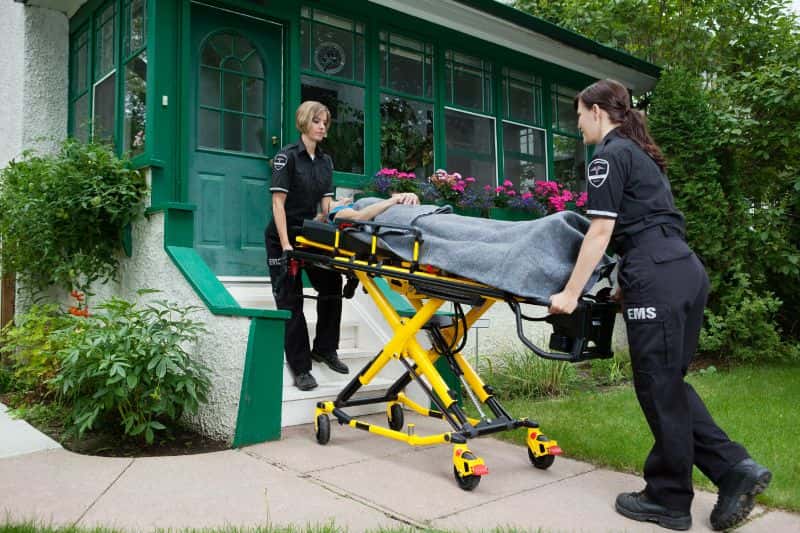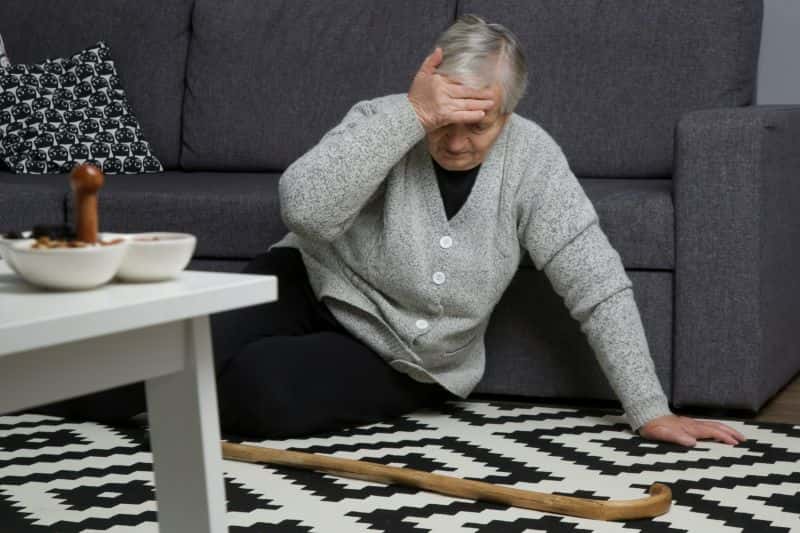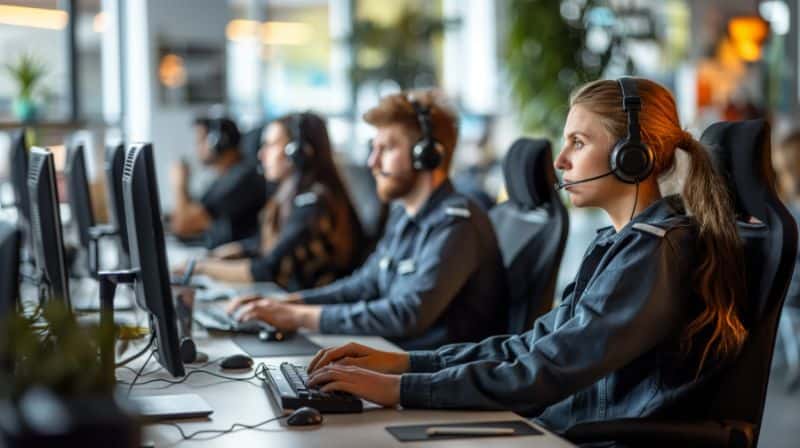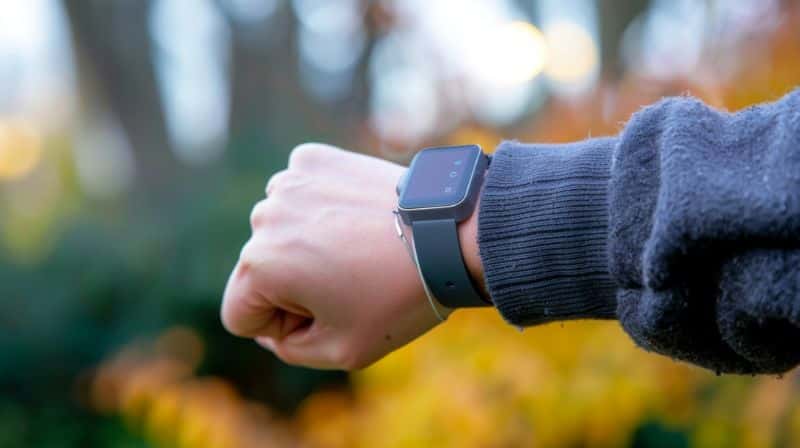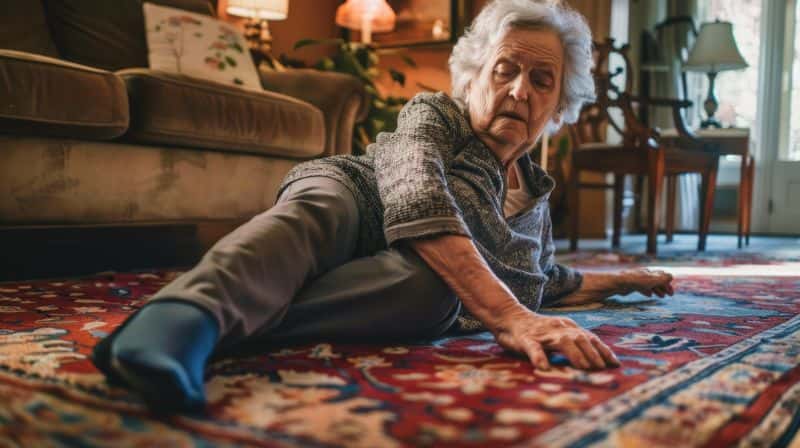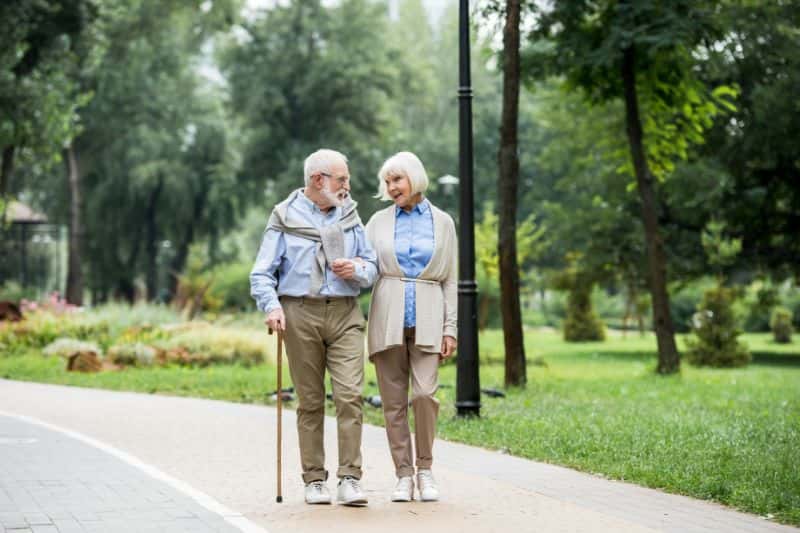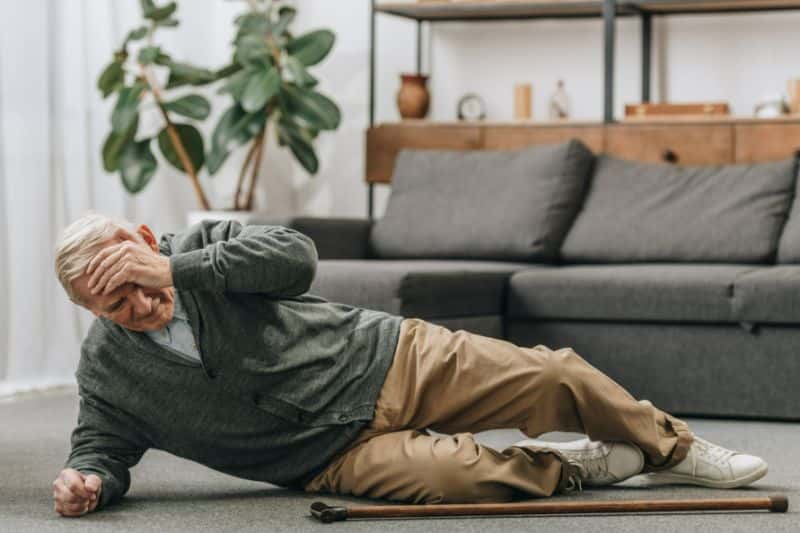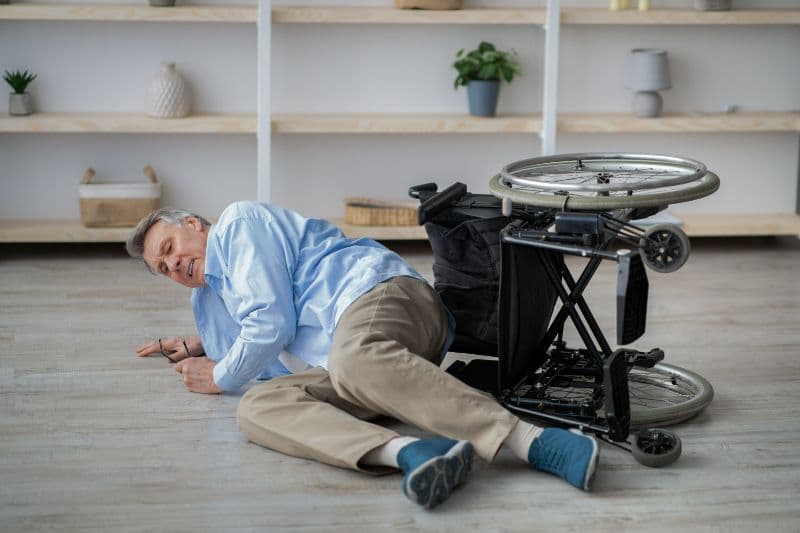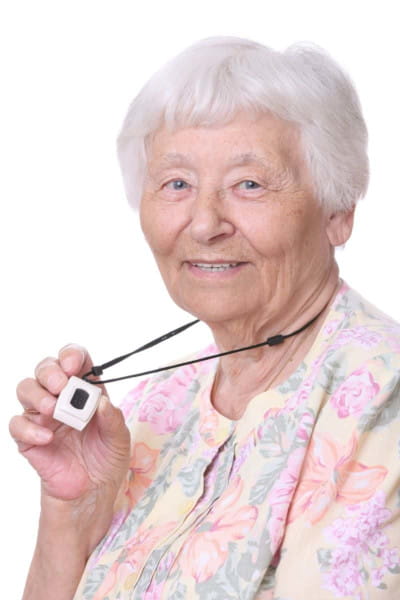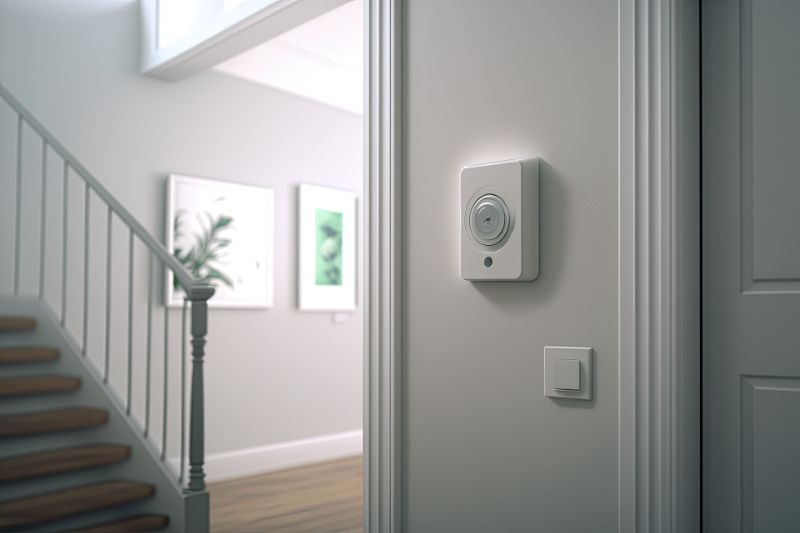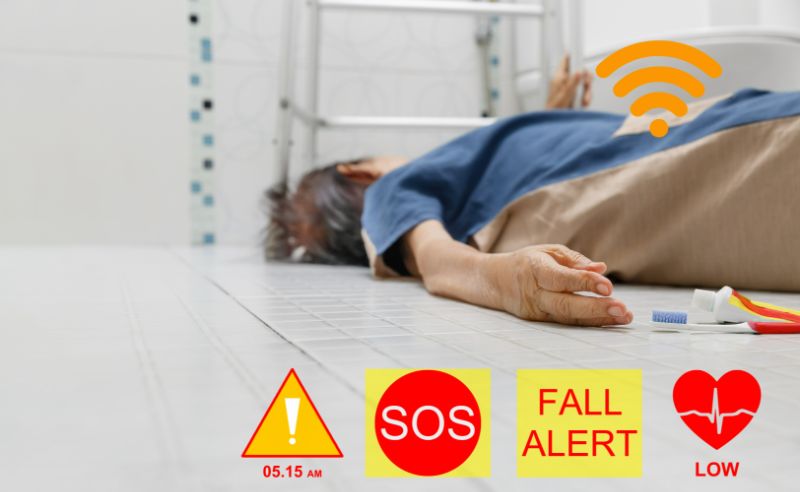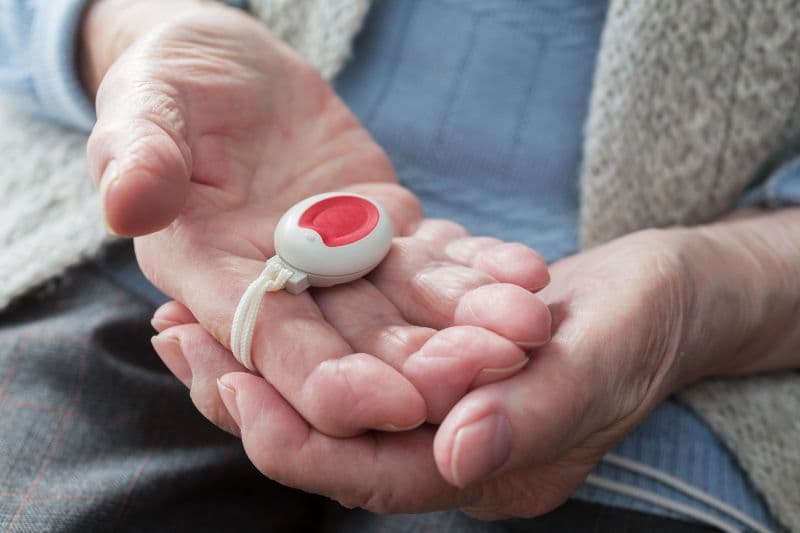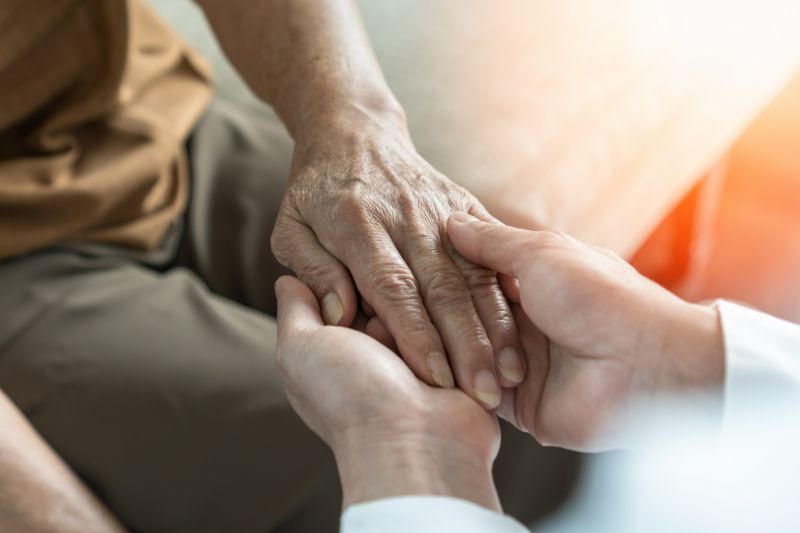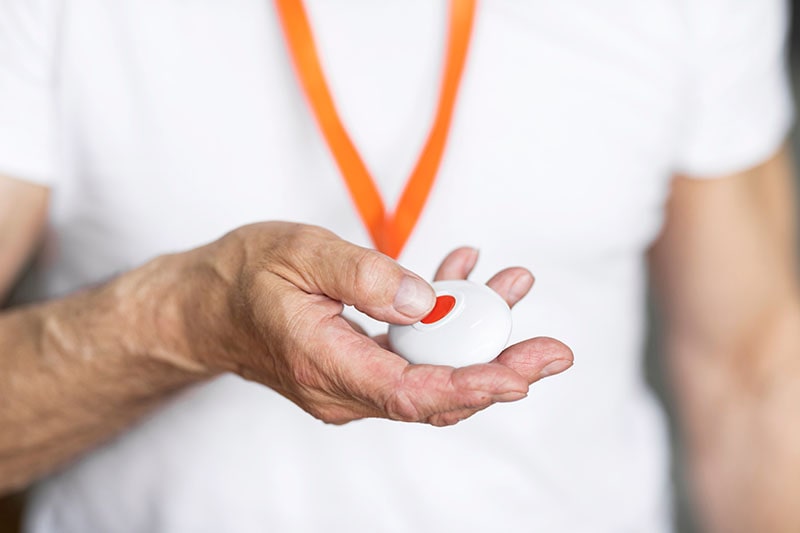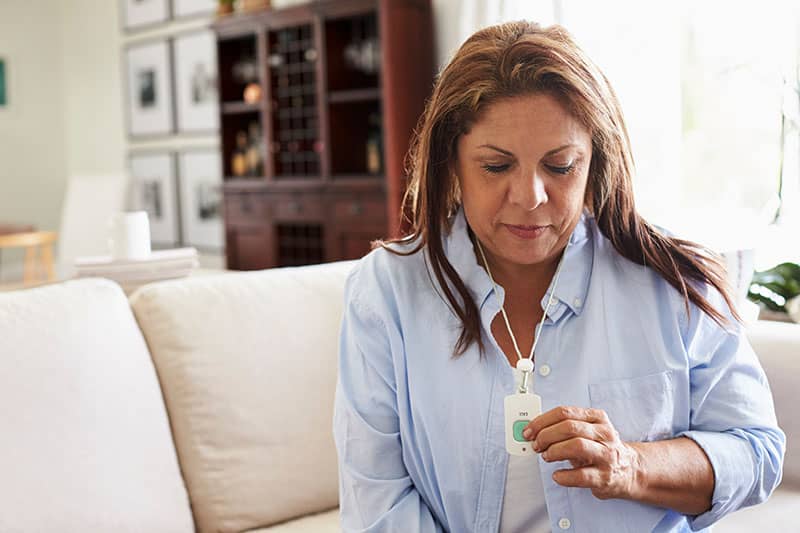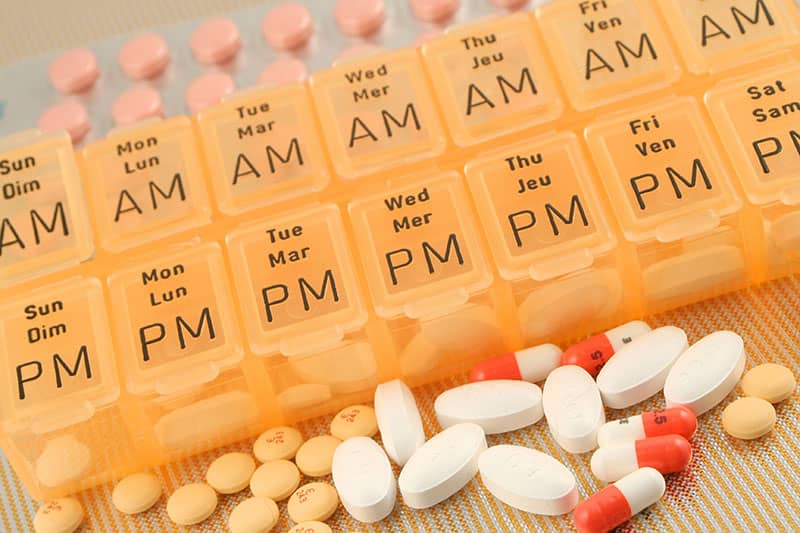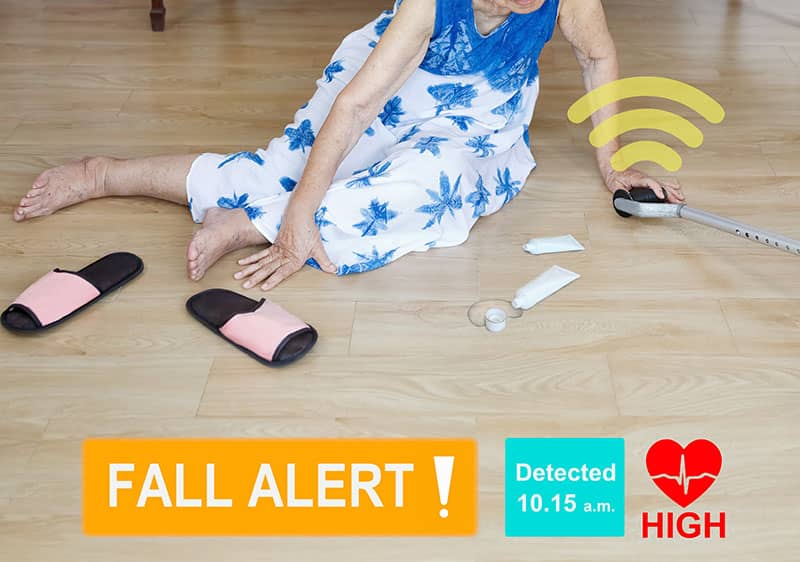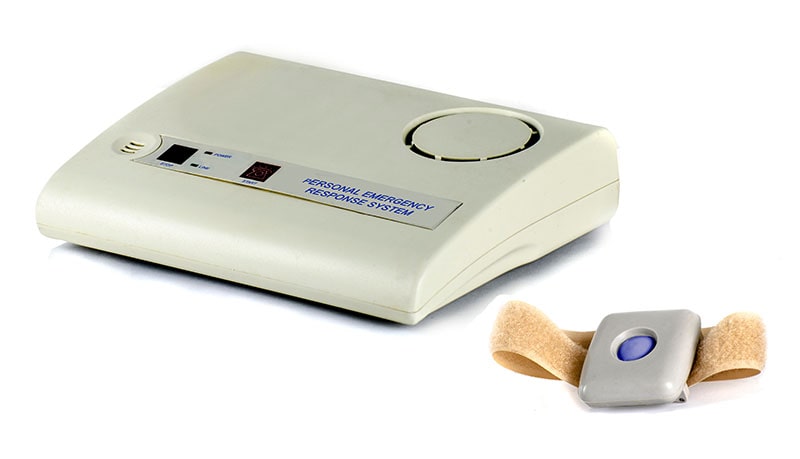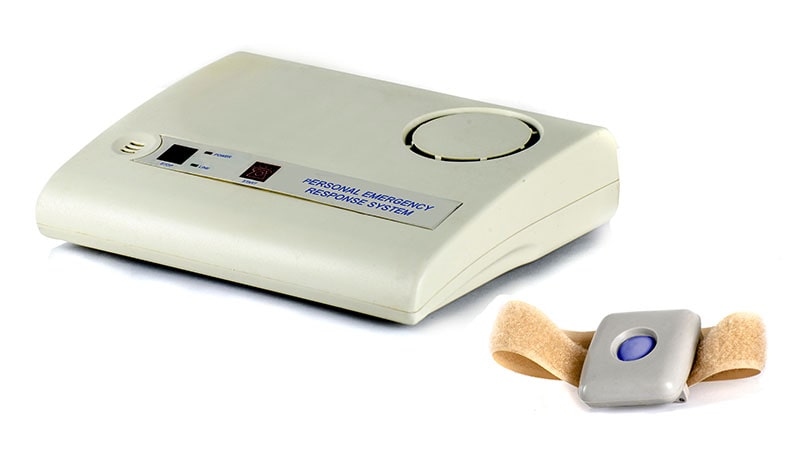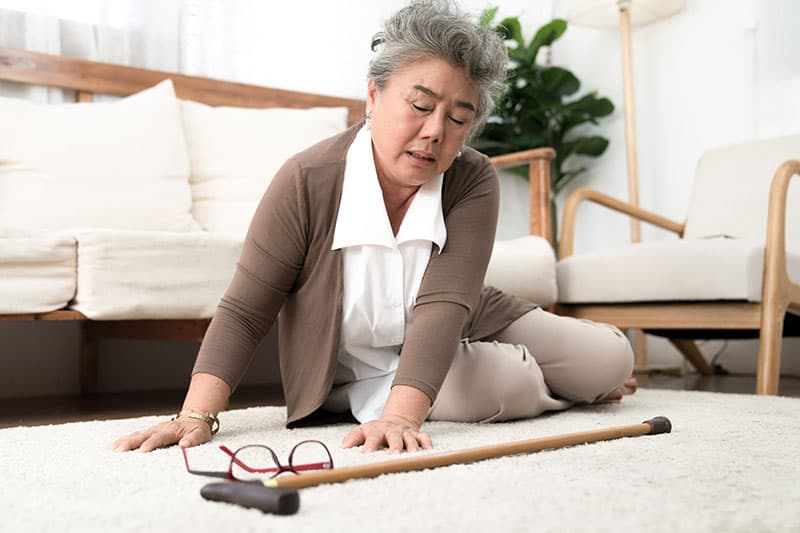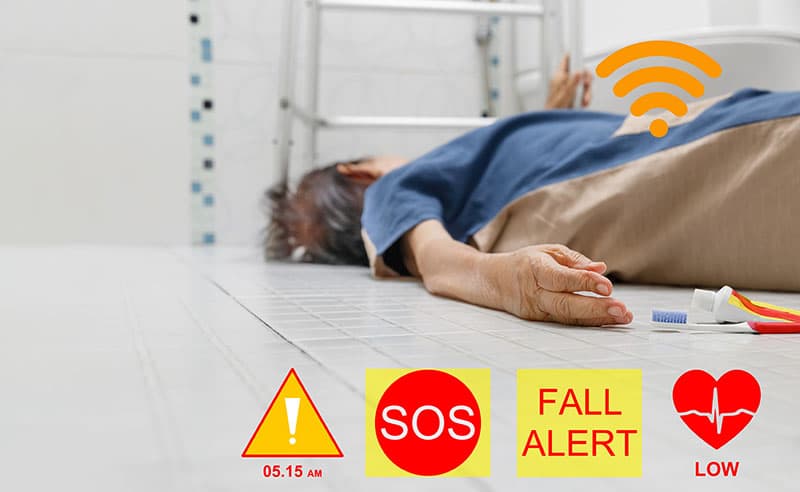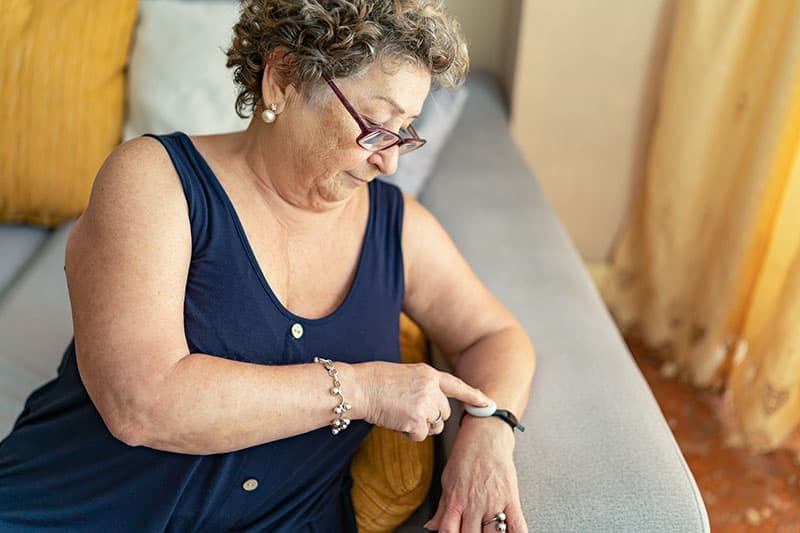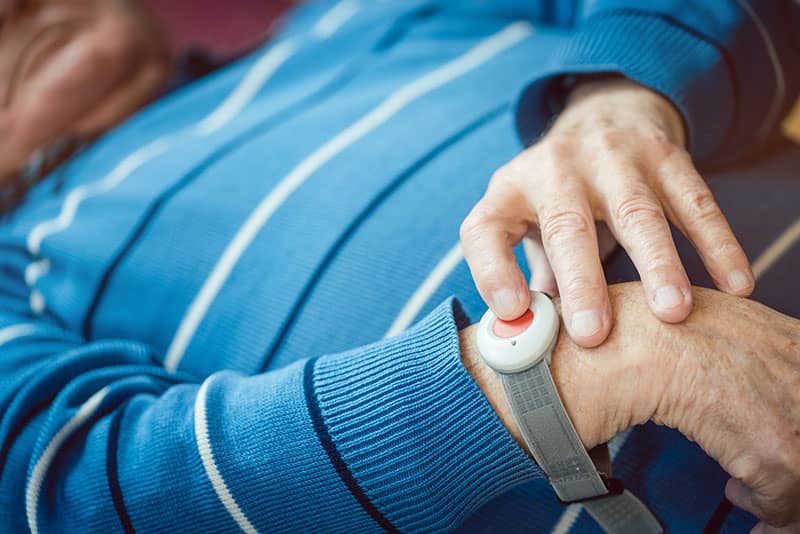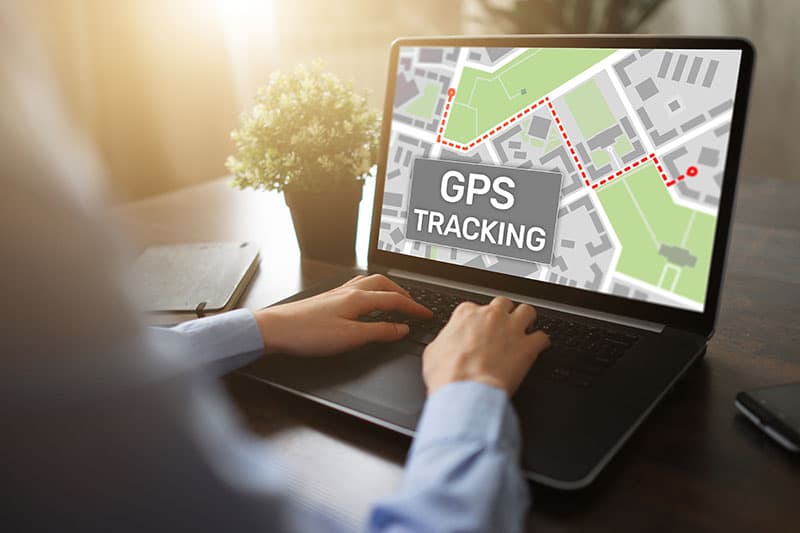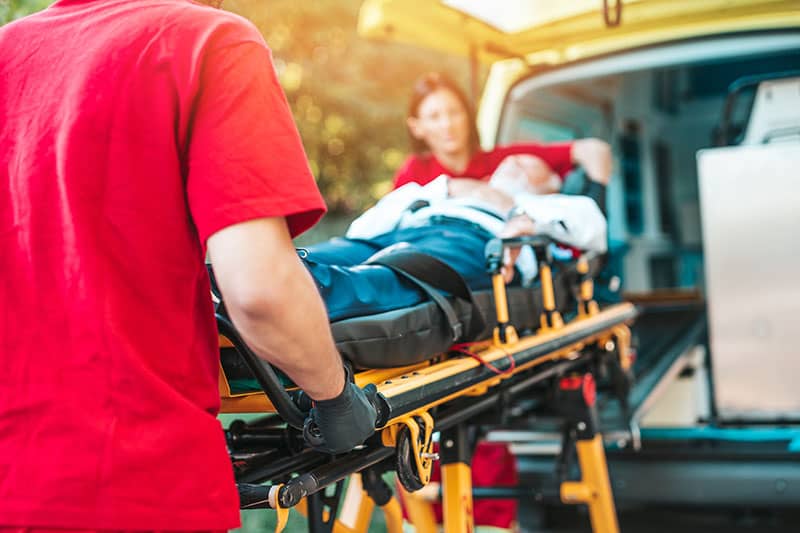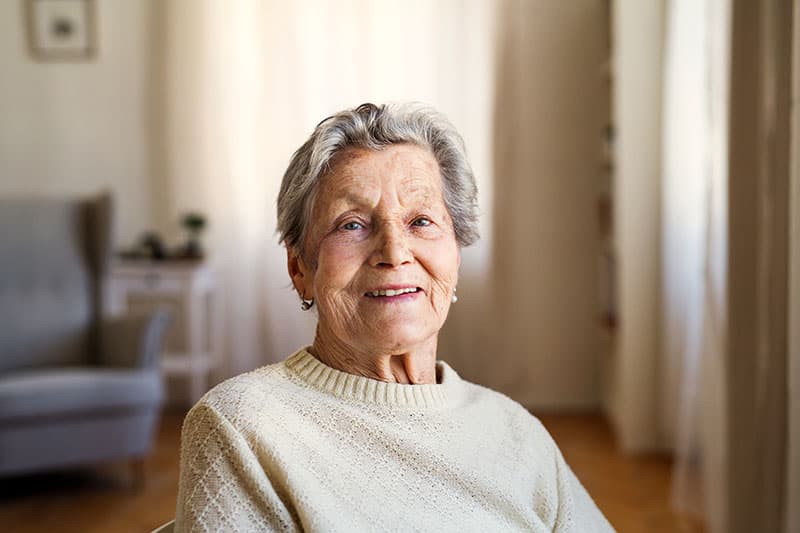Newfoundland and Labrador boasts rugged beauty featuring beautiful coastlines, cliffs, and quaint fishing communities. St. John’s, the capital city, has a unique character and charm.
While it is a scenic place, it can be more challenging to get emergency assistance due to its relatively remote location and harsh weather conditions.
Seniors can live alone more confidently and without worry if they have an emergency panic button to turn to in a medical emergency.
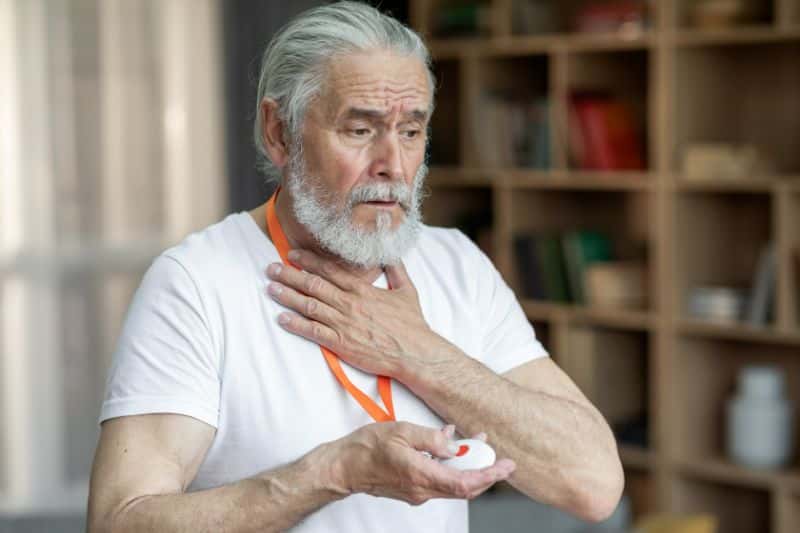
These advanced systems are used to summon help with just one push of a button. The user is immediately connected to an emergency operator who will assist and dispatch the appropriate response team.
Find out how older adults and seniors use panic buttons in Newfoundland & Labrador for their security and peace of mind.
The Purpose of Emergency Panic Buttons for seniors
A panic button lets a senior call for help with just one push of the button. It instantly connects the user to an emergency operator at a reputable monitoring center.
The panic button has a built-in 2-way communication system that allows the operator and the user to speak. This is very convenient for a senior because he doesn’t need to use a smartphone to call for help. Many seniors can get disoriented or confused in a panic situation. Having to simply press an emergency button simplifies the process of calling for emergency assistance.
A panic button is an all-around emergency system that bypasses the need to have a phone on hand, memorize numbers, or give details of the situation which are difficult to do in a duress situation or emergency.
The emergency operator will know the user’s address and will also have on file the user’s medical history and contact persons, if any.
As you can see, a panic button can be a lifesaver in an emergency situation.
Who should have a panic button?
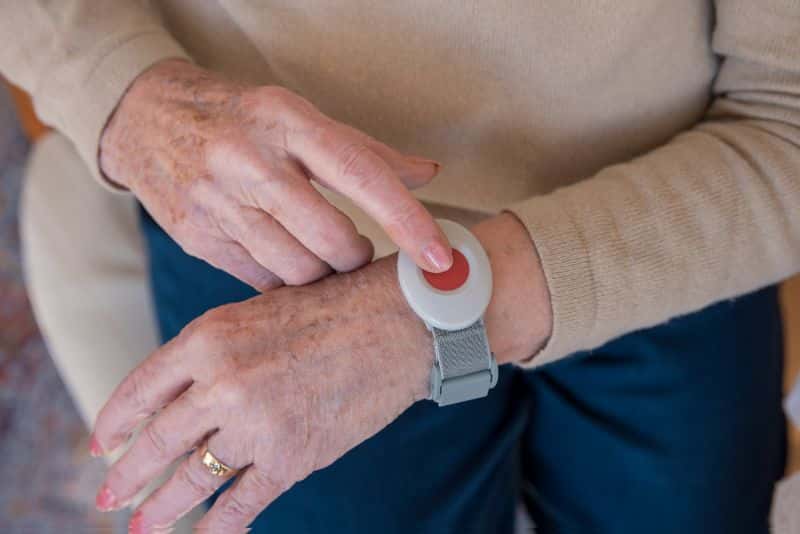
A panic button is highly-recommended for the following individuals:
- Seniors living alone;
- Seniors 65 and older;
- Persons living with disabilities;
- Patients recovering from an illness or surgery;
- Persons with medical conditions like arthritis, diabetes, cancer, Parkinson’s disease, epilepsy, etc.;
- Persons with balance or mobility problems;
- Individuals taking medications with side effects;
- Persons with a history of falls;
- Seniors with Alzheimer’s, dementia, and other similar conditions.
- Any person who wants immediate access to emergency services.
Panic buttons are not only for the elderly. They can be very useful and reassuring to have for anyone who wants more security in case of an emergency.
How to use an emergency panic button
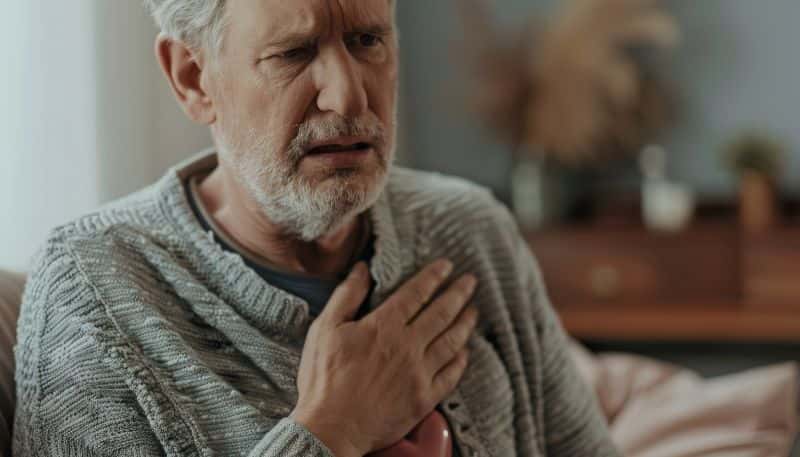
Panic buttons are part of medical alert systems or personal emergency response systems. While they were mostly designed for seniors and persons with medical conditions, they can also be used for non-medical emergencies.
What happens if you press the panic button? Your system is connected to a certified monitoring center that operates 24/7. An emergency operator will respond to your distress call.
For instance, a senior who thinks an intruder is trying to get inside his home can press the panic button and instantly ask the emergency operator to call the police.
In this situation, the elderly person won’t need to use a smartphone to call 911. The emergency operator can quickly do this and provide the police with details such as the name of the person, address, and other significant details. In a duress situation, having instant access to emergency services can be a lifesaver.
Steps to get emergency assistance
When you are in an emergency situation, there is only one thing you need to do.
- Press the panic button
- Speak to the emergency operator to ask for help.
The operator will stay on the line until help arrives. For non-medical emergencies, the operator can also contact the user’s caregiver or emergency contact.
If it is a false alert, simply cancel the alert by speaking to the operator. When the operator receives an alert and fails to verify with the user, he will send help.
It is very important for a senior to wear the panic button at all times. Most buttons are available as a pendant or watch. They are usually water-resistant or waterproof so you can wear them even in the shower or bath.
If you wear a panic button, calling for help is quick and easy. You have the assurance that day or night, you can contact emergency services in an instant with one press of a button.
Medical Alert Systems with Panic Buttons
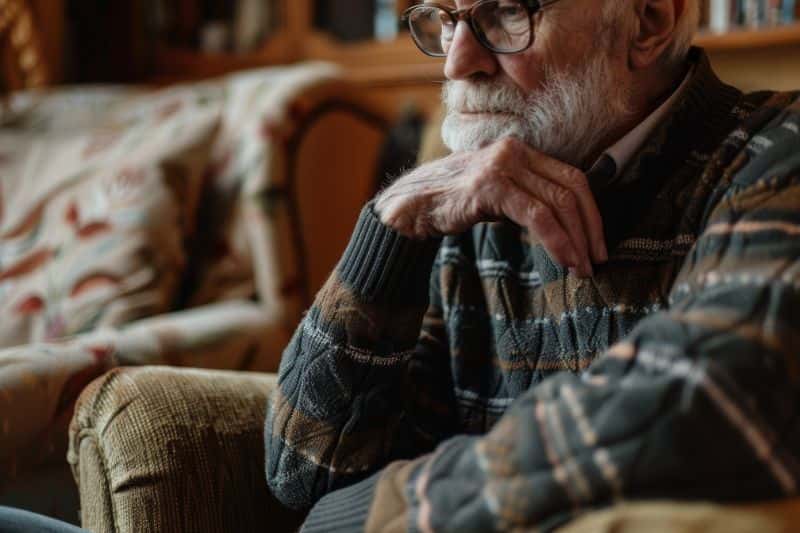
We already discussed the importance of having a panic button. But do you know that a panic button is so much more?
Modern medical alert systems offer enhanced protection with a panic button. Other features are:
- Automatic fall detection;
- GPS/location tracking;
- Geo-fencing;
- Medication dispensers;
- Health monitoring system.
There are many types of medical alert systems to choose from. Find out more about your options so you can find the right one for you.
At-home systems vs. Wireless Systems
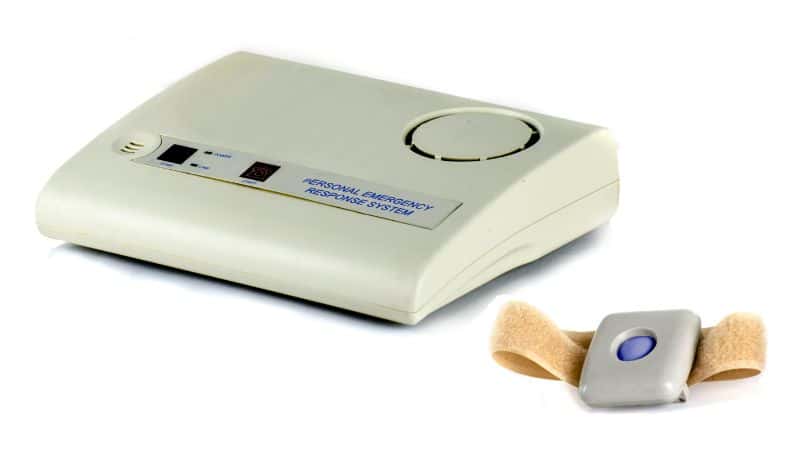
Medical alert system companies offer two options – At-home systems (for users who want protection while in the home) and wireless systems (for users who spend time outside and want continuous access to emergency services.
At home systems have limited range and are ideal for users who spend most if not all of their time at home. Most systems have from 200 ft. to 600 ft. range. Be sure to choose a system that can cover the size of your home so you can be secure anywhere you are. Some systems need a landline but there are those that can connect to VOIP service.
Wireless systems work anywhere there is a cellular signal. Hence, you can access emergency services with your panic button wherever you are.
Wireless systems are a bit more expensive than at-home systems but they do provide wider coverage and extra protection with GPS tracking and automatic fall detection.
Medical alert systems with Automatic Fall Detection
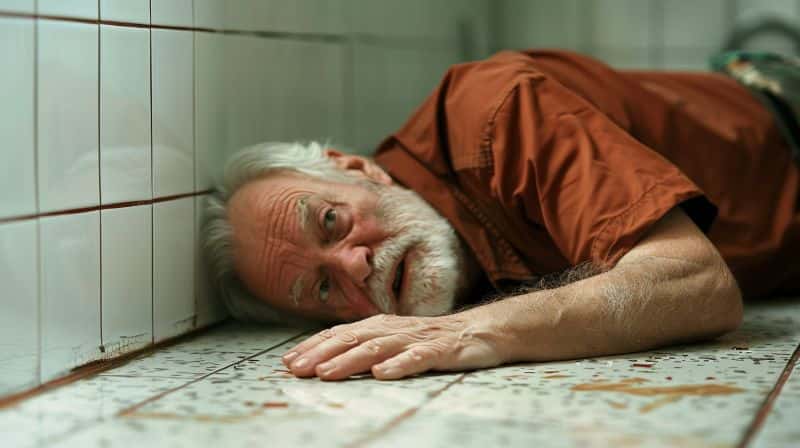
According to Statistics Canada, 6,579 seniors aged 65 years and older died from fall-related injuries in Canada in 2021. 61% of falls occurred while walking.
What is automatic fall detection? It is an extra level of protection offered by medical alerts systems. With built-in sensors, your medical alert pendant can detect a fall and alert the monitoring center of a potential fall. Even if you fail to press the panic button, an emergency operator will respond to the alert and contact you to verify your condition.
Why is fall detection important?
For seniors, a fall can be dangerous and cause extreme injuries. A senior can be unable to get up, fall unconscious, or injured to the point that pressing the button or calling for help becomes impossible.
If your medical alert system has automatic fall detection, emergency services will arrive at your location even if you can’t press the panic button. They will know where to find you even if you don’t provide your exact details. For seniors, quick medical attention is vital to prevent more complications.
By using a medical alert system with automatic fall detection, you can make your home a safer place for you. You can also feel safer while enjoying a more active lifestyle for seniors. You can be assured of getting help at all times if you suddenly feel sick or fall.
Fall detection for At-home Systems
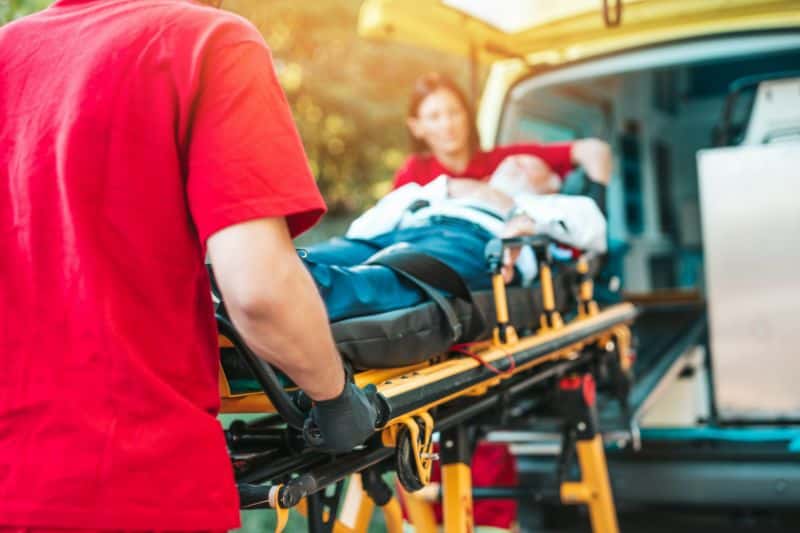
Some medical alert systems for home use can also be equipped with automatic fall detection. If the user has a heart attack and falls to the floor, the system will trigger a fall alert. The emergency operator will dispatch a medical team to provide emergency medical aid in a matter of minutes!
For individuals who live in remote locations in Newfoundland & Labrador, a medical alert system with a panic button is the fastest way to get help in an emergency.
Be sure to compare multiple medical alert systems for home use if you want to get this extra layer of protection.
Each medical alert system uses its own fall technology, including accelerometers. Start to compare medical alert systems and fall detectors by filling out our free online form today.
Compare panic buttons in Newfoundland and Labrador
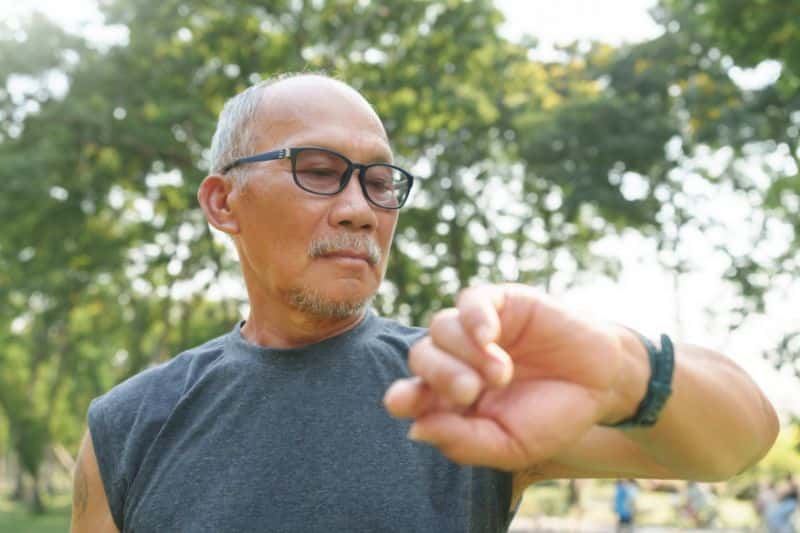
Are you ready to shop for a panic button in Newfoundland and Labrador?
We compiled a list of the best medical alert systems in your area to help you make the right choice. These systems are emergency resources for seniors in Newfoundland and Labrador so they can have the confidence they need to live independently.
Medical Alert System | Features | Cost |
Life Assure | Available in Classic Home with water resistant pendant or wristband
| Classic Home: $34.95 monthly |
Lifeline | Offers several choices for their medical alert systems. | Monthly fees cover equipment cost and monitoring fees. |
Global Security |
Has real-time geolocation and optional fall detection
|
|
SecurMedic |
|
A non-contractual monthly payment of $19.95. |
Galaxy Medical Alert System |
With 6 different systems choices and add-ons. Home System, Home & Yard System, Fall Detection System, Cellular System, and Mobile with Fall Detection System. CSAA 5-Star rated monitoring centers |
|
These are but some of the best medical alert systems in your area. Take the time to compare your options to save money and get the system that is right for your needs.
Fill out the short online form below to receive multiple quotes to compare at no cost or obligation!

